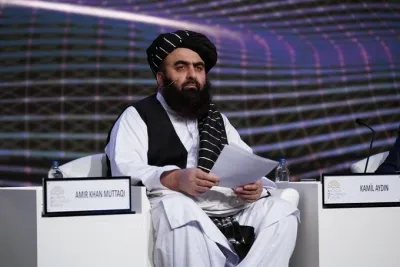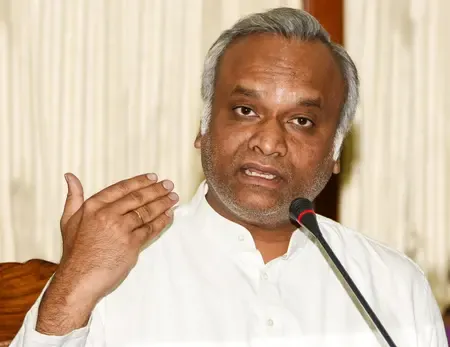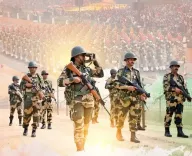What Does Afghan FM Muttaqi’s Visit to Darul Uloom Deoband Entail?

Synopsis
Key Takeaways
- Amir Khan Muttaqi is visiting India for seven days to engage in discussions.
- His itinerary includes a significant visit to Darul Uloom Deoband.
- Muttaqi will meet with esteemed scholars and leaders during his visit.
- The visit signifies ongoing diplomatic engagements between India and the Taliban.
- UNSC exemption was granted, allowing the visit to proceed.
New Delhi, Oct 11 (NationPress) In a notable diplomatic event, Amir Khan Muttaqi, the Foreign Minister representing the Taliban-led administration in Afghanistan, has arrived in India for a week-long visit focused on fostering discussions about bilateral and regional issues. As part of his agenda, Muttaqi is set to visit the esteemed Darul Uloom Deoband located in Uttar Pradesh this Saturday.
His arrival at the Islamic seminary is planned for 10:30 a.m., where he will dedicate nearly five hours to the institution. This marks the first occasion a senior Taliban official has visited Darul Uloom Deoband since the shift in governance in Afghanistan.
During his stay at the seminary, Muttaqi is anticipated to engage with distinguished Islamic scholars, including Mufti Abul Qasim Nomani, the head of Darul Uloom, and Maulana Arshad Madani, President of the Jamiat Ulama-e-Hind. He will explore the campus and participate in dialogues with faculty and leadership.
Darul Uloom Deoband holds deep symbolic and ideological significance for the Taliban. Numerous senior Taliban figures received their education at Darul Uloom Haqqania in Pakistan’s Khyber Pakhtunkhwa province, an institution inspired by Deoband.
The founder of Haqqania, Maulana Abdul Haq, was both a student and teacher in Deoband prior to the Partition. His son, Sami-ul-Haq, later became known as the 'Father of the Taliban' due to his seminary’s pivotal role in the movement’s formation.
On October 12, Muttaqi will visit Agra to see the famed Taj Mahal, followed by meetings with Indian business and industry leaders at an event organized by a prominent chamber of commerce in New Delhi the following day.
Initially, Muttaqi’s visit was set for weeks earlier but faced delays due to the absence of a United Nations Security Council (UNSC) travel ban exemption. Last week, India’s Ministry of External Affairs confirmed that the UNSC Committee has approved the exemption, allowing the visit to take place.
This visit is a continuation of recent backchannel diplomatic interactions between New Delhi and the Taliban. Earlier this year, Indian Foreign Secretary Vikram Misri met with Muttaqi in Kabul.
Last month, Hamdullah Zahid, Afghanistan’s Deputy Minister of Medicine and Food, also visited India for an international healthcare exhibition.









